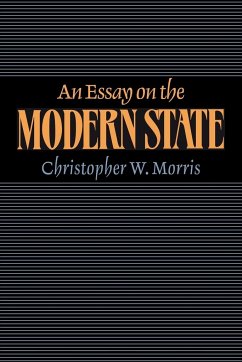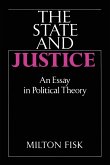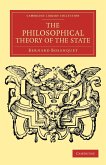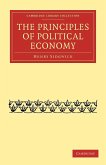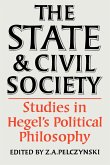This important book is the first serious philosophical examination of the modern state. It inquires into the justification of this particular form of political society. It asks whether all states are 'nation-states', what are the alternative ways of organizing society, and which conditions make a state legitimate. The author concludes that, while states can be legitimate, they typically fail to have the powers (e.g sovereignty) that they claim. Many books analyze government and its functions but none focuses on the state as a distinctive form of political organization or examines critically the claims states make for themselves. In filling this lacuna Christopher Morris has written a book that will command the attention of political philosophers, political scientists, legal theorists, and specialists in international relations.
Table of contents:
Preface; 1. Introduction; 2. The modern state; 3. Social order in anarchy; 4. Legitimacy; 5. Reasons; 6. Justice; 7. Sovereignty; 8. Boundaries; 9. The functions of governments; 10. States: pretenses, powers, prospects; Notes; Index.
This important book is the first serious philosophical examination of the modern state. It inquires into the justification of this particular form of political society. Morris has written a book that will command the attention of political philosophers, political scientists, legal theorists, and specialists in international relations.
This important book is the first serious philosophical examination of the modern state.
Table of contents:
Preface; 1. Introduction; 2. The modern state; 3. Social order in anarchy; 4. Legitimacy; 5. Reasons; 6. Justice; 7. Sovereignty; 8. Boundaries; 9. The functions of governments; 10. States: pretenses, powers, prospects; Notes; Index.
This important book is the first serious philosophical examination of the modern state. It inquires into the justification of this particular form of political society. Morris has written a book that will command the attention of political philosophers, political scientists, legal theorists, and specialists in international relations.
This important book is the first serious philosophical examination of the modern state.

